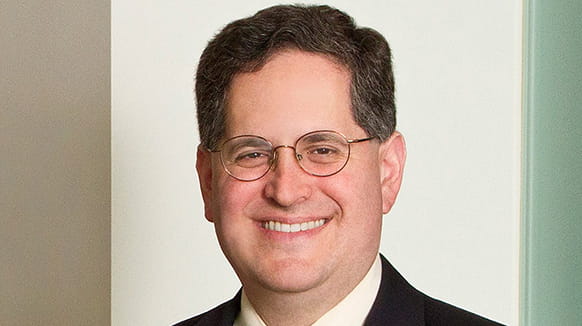View the PDF version of the May 2021 IP Beacon.
Copyright Case of the Century Decided: Supreme Court Rules in Google’s Favor in $9 Billion Software Dispute
At long last, and after more than a decade of litigation, the United States Supreme Court has ruled in the multi-billion dollar copyright dispute between Google LLC and Oracle America, Inc. In a matchup that could be described as Goliath vs. Goliath, the technology giants waged war for years over Google’s unlicensed use of Oracle’s Application Programming Interfaces (“API”) in early versions of its Android smartphone platform. In a case involving two jury trials, two Federal Circuit appeals, and two petitions for certiorari to the Supreme Court, both sides had wins and losses along the way, but Google ultimately prevailed before the Supreme Court and was absolved of liability.
The case involved two key issues: (i) whether Oracle’s APIs were subject to copyright protection; and (ii) whether Google’s use of the APIs was a fair use. The Court dodged the copyrightability question, which had the potential to send shockwaves throughout the industry, and instead focused its analysis on the fact-intensive fair use defense. By doing so, the Court potentially limited the direct impact of its decision to the dispute at hand and ones like it. But the Court’s broad application of the fair use analysis is likely to lead to greater reliance on the defense in the software industry and beyond. Unfortunately, what the Court’s opinion failed to do is add much-needed clarity and certainty to what has long been a convoluted, inconsistently-applied, and murky area of copyright law.
Read more.
Joseph Matal in Federal Circuit Law Journal: ‘The Three Types of Abstract Ideas’
No field of patent jurisprudence is more vigorously criticized by a more distinguished group of authorities than is the current law of subject matter eligibility. A former Chief Judge of the Federal Circuit has described the state of the law as “unending chaos” and a “menagerie of inconsistency” in which judicial decisions are “unclear, inconsistent with one another and confusing” and in which he himself cannot “predict outcomes in individual cases with any confidence.”
Another former Chief Judge of the Federal Circuit has noted the “exist[ence] [of] widespread uncertainty and confusion regarding” standards for patent eligibility, which “is especially pronounced with respect to the exception for abstract ideas” – and “is allowing patent challengers to … wield the exception[s] [to eligibility] like a sledgehammer.”
Read more.
David McCombs, Eugene Goryunov, Dina Blikshteyn and Roy Falik in Bloomberg Law: ‘COVID Testing and Patentability’
In September 2020, a team of MIT researchers published a paper in the IEEE Open Journal of Engineering in Medicine and Biology, testing the hypothesis that coronavirus carriers—even asymptomatic ones—could be accurately detected using artificial intelligence (AI) based on only a phone recording of a forced cough.
If this hypothesis is correct, the COVID-19 test can be accessible to people worldwide. This is because it can be programmed into a mobile application, which can then be installed by millions of people on their smartphones. Once installed, people can use their smartphones to take a test from the comfort of their home and quickly determine whether they are likely to test positive or negative for the virus. There is no doubt that this invention is valuable, accessible, and easy to use. But is this invention patentable?
Read more.
David Bell, Randall Brown and Mira Park in Law360: ‘Hashing Out IP And Legality Questions on Delta-8 THC’
You've heard of CBD and THC, but what do you know about their cousin — delta-8 tetrahydrocannabinol, or delta-8 THC?
This compound may be on the cusp of taking over the legal hemp market. As is the case with most things cannabis, the legality of delta-8 THC is not straightforward. What makes hemp-derived delta-8 THC particularly interesting is that, like hemp-derived CBD, it might be legal under federal and some state laws, but, unlike CBD, it can produce a high.
Here, we provide an overview of the legal framework for delta-8 THC, as well as comment on the interesting intellectual property questions that it raises.
Read more.
Vera Suarez in Law360: ‘Fed. Circ. Simio Patent Eligibility Ruling May Affect Alice Test’
When determining whether patent claims recite patent-eligible subject matter under Title 35 of the U.S. Code, Section 101, courts follow the two-step framework from the U.S. Supreme Court's 2014 Alice Corp. v. CLS Bank International decision.
The first step of the Alice test determines whether the claims are "directed to" an abstract idea. If not, then the claims are patent-eligible. If so, then the second step of the Alice test determines whether the claims contain an "inventive concept" sufficient to transform the abstract idea into a patent eligible application.
The detailed description of the claimed invention is considered in the two-step framework, and the U.S. Court of Appeals for the Federal Circuit's recent opinion in Simio LLC v. FlexSim Software Products Inc. may change how the detailed description is reviewed when determining whether the claims are "directed to" an abstract idea in the first step of the Alice test.
Read more.
Alerts
The IP Beacon, May 2021
Media Contacts
- Jacob Bourne
- Director of Media Relations
